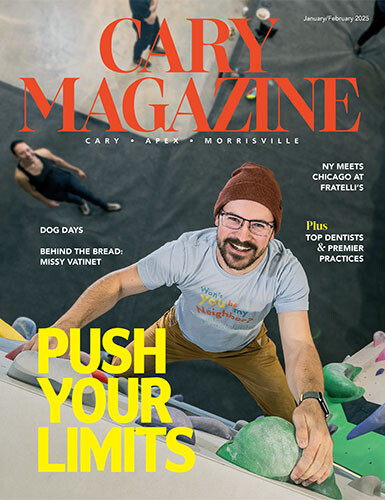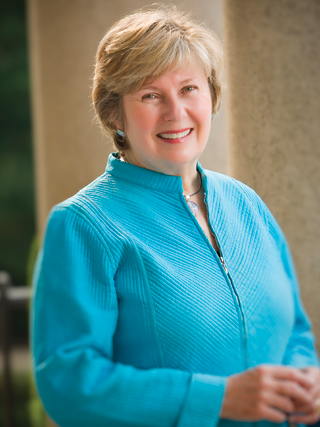Nurse, teacher or homemaker: In years past, women’s career choices were simple. Dr. Maureen Hartford has worked hard to ensure that’s no longer the case.
The first female president of Meredith College, Hartford has spent her 30-year career in higher education helping young women expand their societal roles and fulfill their personal potential.
“The most wonderful change is it’s not remarkable when women say I want to do anything now,” Hartford said, throwing her arms wide.
Ironically, a young Hartford rejected her mother’s push toward teaching.
“I said, ‘Anything but education,’” she remembers. “I did not see that as a direction for me.”
But the master of arts and college teaching, an educational track created in the 1970s in response to nationwide growth in community colleges, changed her outlook.
Whether as a community college instructor, or in senior administrative positions at other universities, Hartford enjoyed interacting with students.
“I never aspired to be a college president, because that usually involves very little interaction with students,” she said. “Students energize me — committee meetings do not.”
So, she has shaped her presidency to keep that contact, working closely with various student groups, and has created work study positions within her office.
“We’ve even started some fun traditions, like the ‘senior sleepover’ at my house,” Hartford said. “I also enjoy working with our alumni, scattered around the world.”
One of the largest private colleges for women in the U.S., Meredith has undergone significant changes during Hartford’s presidency, which began in 1999.
Its School of Business earned accreditation by the Association to Advance Collegiate Schools of Business International, one of only two women’s colleges in the world to do so. Master of arts degree programs added include nutrition, teaching and a dual undergraduate degree program with NCSU in engineering. Meredith also became the first women’s college to serve as a campus site for the nationally recognized LeaderShape Institute, promoting ethical leadership. Hartford sits on the LeaderShape board.
Physical improvements to campus include a $21 million math and sciences building, LEED-certified student apartments and a new athletic field and track complex.
“We’ve done some ‘un-Meredith’ things, such as joining an athletic conference,” Hartford added, earning three conference championships in tennis and soccer during the past two years.
Though Hartford has worked in coed settings, she believes single-gender education holds an important place in society.
“It’s such a different place to learn,” she said, citing a Duke study that found that even in 2010, women hesitate to challenge men openly in the classroom. “We’re still so stereotyped in our thinking. Single-gender education creates, very early on, a different level of confidence.
“This creates stronger leaders who will know how to work with men. They’ve honed their skills, they’re comfortable with who they are and are confident going out and leading. As a result, they are better citizens, volunteers and workers.”
The wealth of choices available to today’s young women leads many to pursue dual degrees or combine interests in unique ways. Hartford encourages ongoing exploration, especially in the current economic climate, and experiential education.
Next June, Hartford will leave Meredith, retiring to a new home in Cary. Reflecting on her tenure, she said, “What’s most meaningful to me is the diversity on this campus now,” including ethnic, age, geographic and religious.
She’s also proud of Meredith’s first international site in Sansepolcro, Italy, opened in 2009 to encourage international study. The college also partners to bring Kenyan and Afghan women to the U.S. for education.
This global approach, combined with a liberal arts-based general curriculum, helps maintain relevance for students, Hartford says.
“It means that regardless of major, you have a core set of knowledge that keeps you on top of the world and gives you the skills to be a lifelong learner,” she said.
Pushing through challenges in a field “remarkably resistant to change” has been crucial to her success. For example, some initially balked at the school’s undergraduate research program, but now students present research on national levels; more than 130 students participated in Meredith’s most recent conference.
Other highlights of her career, Hartford says, include fundraising to meet school needs including the college’s largest-ever freshman class in fall 2009 and an endowment that has grown to $88.2 million, the college’s most successful fundraising campaign. Her appointment by the U.S. Secretary of the Navy to the Marine Corps University Board of Visitors is also noteworthy.
The work she’s led at Meredith, including development of a new five-year strategic plan to pass to the next president, will carry the school into the future, Hartford believes.
“I don’t think you can change back from becoming a more pluralistic place; this will always be a place where voices are heard,” she said. “We’re learning together — what a powerful message to send.”





